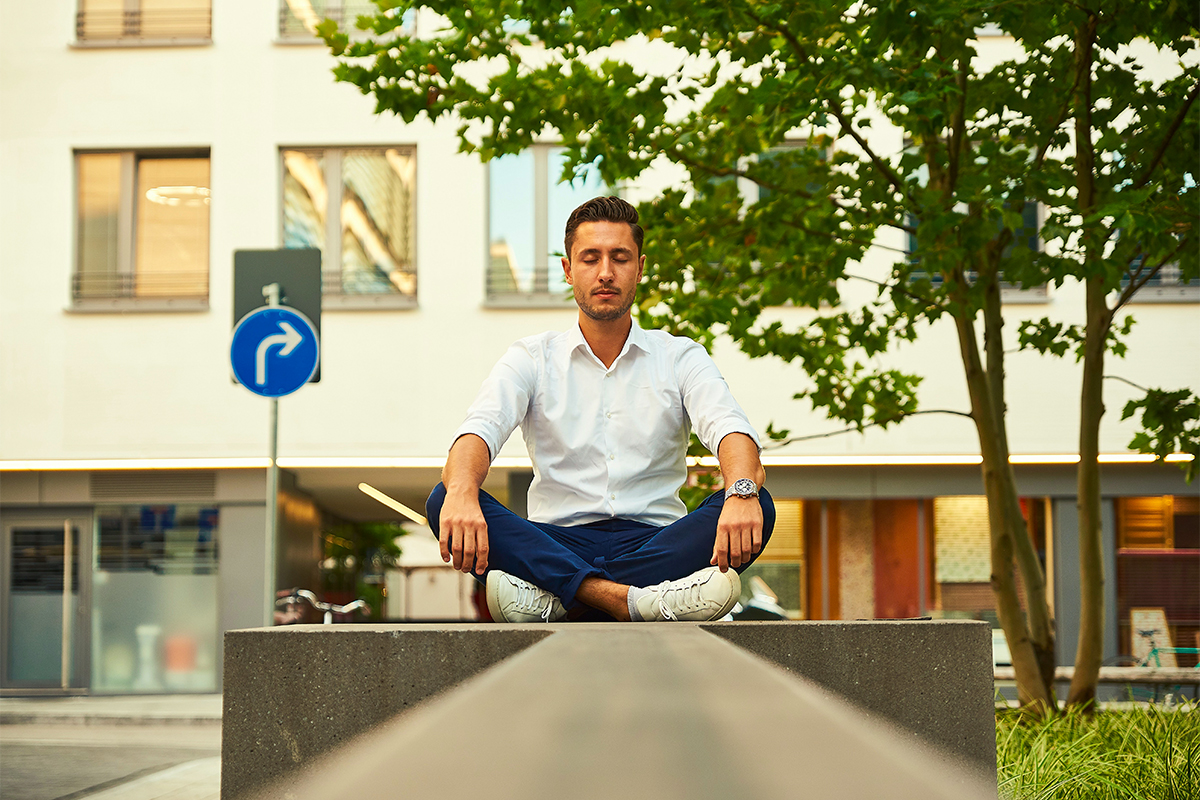Most of us start the new year with good intentions to change our personal and professional lives for the better. We make new year’s resolutions and promise ourselves that we will make them happen. However, achieving these newly established goals within our already busy lives is easier said than done. More often than not, within a few months these new behaviours inevitably fall by the wayside.
According to a recent survey of 1,010 adults in the US, undertaken by public health initiative The Monday Campaigns, 89 per cent of Americans intend to maintain the habits they developed during the pandemic. Spending time with family, exercising regularly and stress management practices were the top habits that people were keen to continue.
However, more than half of the respondents reported that staying on track is their biggest obstacle when it comes to sustaining health-related goals.
“Decades of research into behaviour change has found that if we want behaviours to become habitual and automatic they should take little mental or physical effort.” – Dr Rangan Chatterjee
Whether it’s quitting alcohol, meditating more often or reducing your caffeine consumption, British author, physician and podcaster Dr Rangan Chatterjee explains that one of the reasons people fail to keep their resolutions is largely due to their focus on the destination rather than the journey.
“It’s the journey you’re taking – the small, regular, daily steps you’re choosing to make – that will end up having the most dramatic long-term effects,” he says.
Chatterjee’s tips for sustaining new habits

Many of the activities we undertake on a daily basis have become habitual, from brushing our teeth in the morning or brewing a cup of coffee to making a payment. This is often why introducing a new behaviour can be difficult to sustain over the long-term. According to Chatterjee, the secret to creating a new habit that lasts is to make it regular and as effortless as possible.
When we tweak certain areas of our lives in positive ways, this can have a ripple effect by improving our performance at work or reducing our stress levels, for instance – as long as these changes are manageable and consistent.
Start easy
In the early stages of forming a new habit, it’s important to begin with five-minute sessions that require little mental or physical effort, which naturally prompts us to engage more in the activity. In his book Feel Better in 5, Chatterjee explains how Stanford University psychologist BJ Fogg flossed one tooth to begin with, which led him to flossing all his teeth within a month, as it slowly grew into a positive habit.
“Decades of research into behaviour change has found that if we want behaviours to become habitual and automatic they should take little mental or physical effort,” he says.
Connect your new habit to an existing one
Consider some of your daily routines and transition points throughout the day that might enable you to seamlessly integrate this change, rather than attempting to carve out time for it in your busy schedule. With this approach you’re more likely to succeed in making this change last. You could hook your new habit onto established behavioural patterns such as your commute to work, during your morning coffee, while you clean – activities which are automatic and regular.
“Most of us have a hot drink in the morning,” Chatterjee points out. “That’s a perfect place to stick on a habit. I get my own five-minute workout done when the kettle’s on and my morning cup of tea is brewing.”
Work with your daily rhythm
There are key points during your day where your energy peaks, you feel sleepy or have more muscular strength that help you to determine the appropriate time to dedicate to your new habit. Before breakfast the cortisol hormone peaks and motivation is strong, which makes it an ideal time for a short burst of exercise; whereas melatonin levels are high before you sleep, which is conducive to a thoughtful or calming activity.
“The important thing is that you do what feels right for you when it feels right,” Chatterjee explains.
Redesign your environment for success
Since we are strongly influenced by our surrounding environment, it’s important that this supports the changes we are trying to make. Some of Chatterjee’s hacks include eliminating sugary foods in cupboards and replacing these with healthy alternatives, positioning a dumbbell close to the kettle to remind you to exercise around the same time that you prepare a hot drink, and minimising light in your bedroom using blackout curtains, ear plugs or an eye mask to encourage a good night’s sleep.
“We’re all hugely influenced by our environments, so make sure yours reflect the healthy habits you’re trying to create,” he suggests.
Celebrate every win with a visual hack
If we wait until we see results and don’t allow ourselves to feel good about our daily efforts, we’re not setting ourselves up for success. Instead of perceiving the change we are making as a distant goal, it’s important to associate the new habit with pleasure. Whether you choose to drop a coffee bean into a jar every time you work out or pop a sticker onto a calendar, having a visual representation of your efforts can serve as a powerful motivation tool and a measure of your success over time.
“The latest science tells us that it is essential to celebrate every single time you make another step on your journey,” Chatterjee says.
The more positive you feel about your new habit, the easier it is to stick to it.
Read Next: Can your hobbies make you a better business leader?







